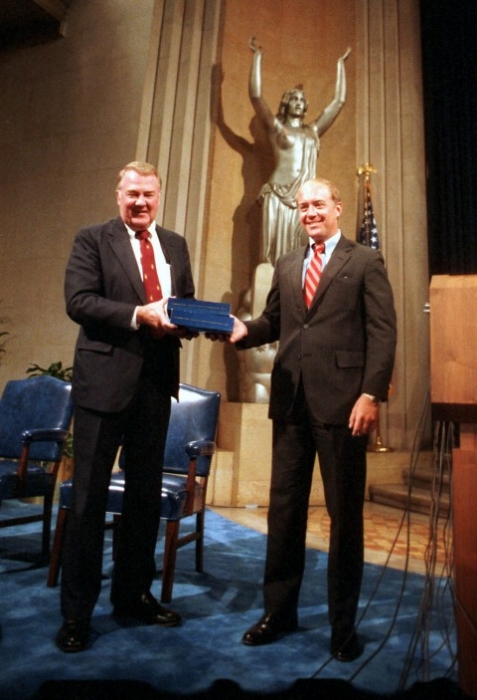During the Reagan administration, the Department of Justice under Attorney General Edwin Meese prepared the final report of the Attorney General’s Commission on Pornography in 1986 to document the scope of pornography in American society.
The report made recommendations on ways to prosecute pornography distributors and halt its spread.
Commission documented growth of pornography industry
Concerned that the pornography industry was connected to organized crime and that sexually explicit materials were increasingly appearing on television, in movies, and in other public arenas, the administration created an 11-person commission under the guidance of Meese.
The group held hearings around the country to document the growth of the pornography industry and to develop ways to stanch its growth while also, according to the commission, respecting the First Amendment constitutional guarantees surrounding this form of expression.
Report recommended ways to address pornography
The final report provided an in-depth examination of many aspects of the pornography industry, including discussion of victimization, harm to families and society, child porn, and an overview of the laws available to prosecute distributors.
The report also included detailed discussions and descriptions of numerous adult movies and offered 36 recommendations for federal, state, and local governments to use to address pornography.
Critics said some recommendations violated First Amendment
Many of these recommendations were never acted upon, and some civil libertarians claimed that some violated the First Amendment. Opponents criticized the commission as a political witch hunt by Meese to curry favor with social conservatives.
This article was originally published in 2009. David Schultz is a professor in the Hamline University Departments of Political Science and Legal Studies, and a visiting professor of law at the University of Minnesota. He is a three-time Fulbright scholar and author/editor of more than 35 books and 200 articles, including several encyclopedias on the U.S. Constitution, the Supreme Court, and money, politics, and the First Amendment.

